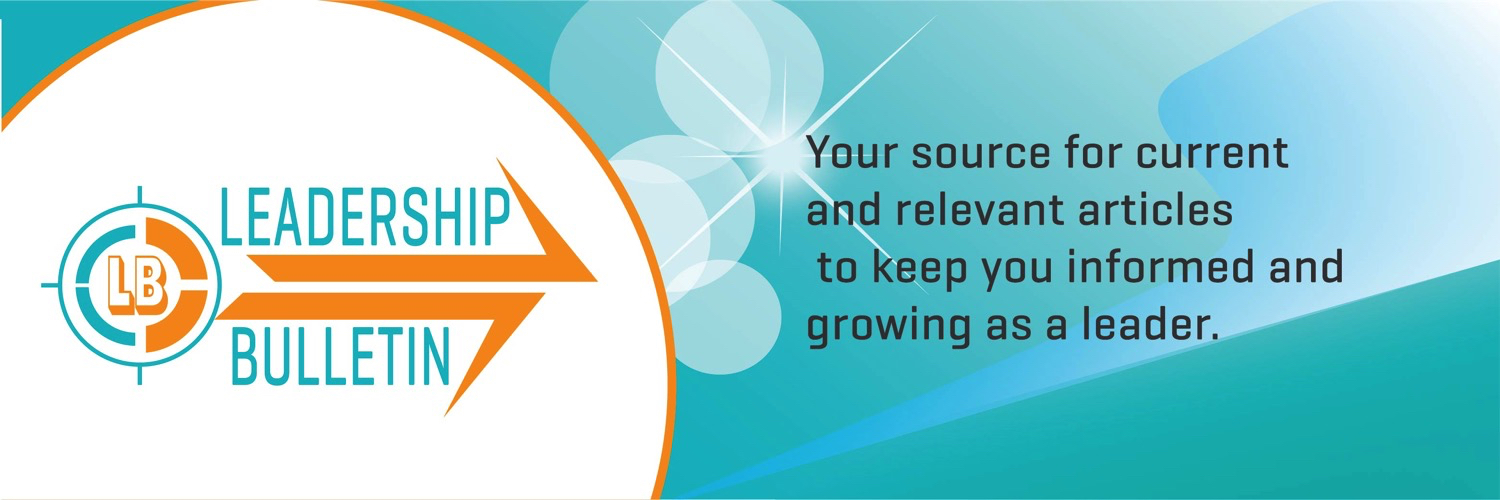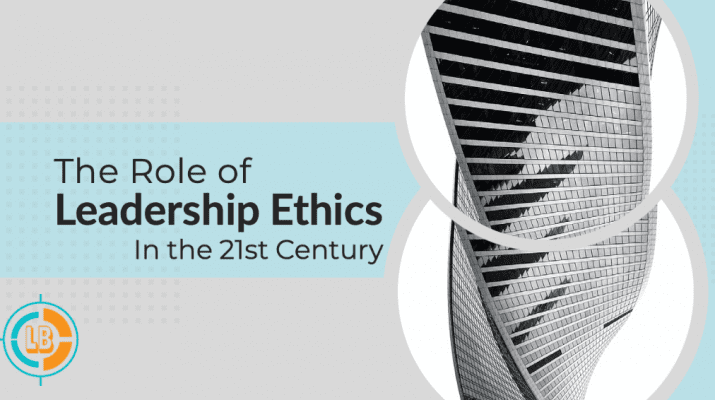The world is facing a global crisis that changed the dynamics of business operations, domestic and international unity amongst governments, and cultural settings and expectations. Leaders, organizations, and governments are forced to address ethical problems and systematic value systems that hurt the wellness and cohesion of the PESTEL – political, economic, social, technological, environmental, and legal structures. The situation with morality and the challenges of leading followers during the 21st Century indicates a need to reexamine the importance of ethics in leadership ability, competence, and organizational function. The livelihood and quality of life for all stakeholders affected by the current situation – Covid-19 crisis and social problems demonstrate the dire need to urgently place the role of ethics as a priority in leadership, organizations, individual, and family units. Globally, peoples’ mindsets, behaviors, and attitudes shift towards a new cultural norm, and leaders and organizations must make a concerted effort to adjust their value systems to help satisfy followers’ needs, positively influence, and prevent incidents of unethical behavior.
The essential concept of ethical leadership for 21st-century leadership and organization focus should contain a strategy that uses preventative measures to appease all stakeholders – internal and external. No longer can leaders and organizations assume their mission, vision, and value structure provides the needed satisfaction levels to promote operational success, follower attractiveness, and the ability to steer society and economic wellness. The recent rise in the global health crisis and exposure to diversity disparity issues warrants a new check into how leaders, organizations, and governments promote and use ethical leadership now and continually. It is the responsibility of leadership to set the example in how to behave ethically for our future generation of young people – generation x and y baby boomers millenniums. The quality of life and the ability to function in a cohesive society now depend on individuals to step up to the plate and embrace ethical leadership as the number one priority to help everyone to transition successfully into the new cultural norms.
Although research and study of ethical behavior produced a myriad of definitions and debates on what is right and wrong, applying the moral principles in this present season of conflict requires a new understanding. Older definitions of ethics refer to the philosophical study of morality – concepts related to the justification of the types of good and bad behaviors. Throughout the history of humanity, cultural norms, political and individual value systems controlled how man considered and accepted wrong or right decisions and actions. The main theoretical concepts of ethics – Normative, Meta, and Applied all contribute to how leaders and followers should respond to specific situations in organizational settings, social and family environments. The challenge for leaders, organizations, and society today is what theories work best to promote cohesion, fairness, and justice for all humanity’s common good.
The moral capacity of ethics points to specific custom, conduct, and character that instills a value system for a specific individual and society. Human nature dictates the choices in decision-making, moral development, and value system that may or may not influence others. Every aspect of the political, economic, social, technological, economic, and legal structure of society is affected by a value-laden system that controls the makeup of the local, state, and national cultural societies and family units. Today, the global world faces implicit and explicit ethical issues and needs to create unity and remove unnecessary communication barriers. A new global perspective towards the concept and use of ethical leadership to improve relations between leaders and followers – all stakeholders is necessary.
Followership is an essential aspect for the leader and organization to consider – it represents the perception of the internal and external stakeholders that influences how they will think, accept, respond, and follow-through in behaviors. Followers who witness unethical behavior that goes unchecked without consequences assume that the negative decision-making and behavior is an accepted cultural norm and organizational value irrespective of what the company mission, vision, and values statement portray. The proper function of followership is to accept the influence of its leader to meet a specific goal. A leader must be careful not to plant a negative seed of unethical behavior that promotes a diehard type mentality in followership where the individual fully supports the wrong decision-making and actions. Leadership and the organizational objective is to build exemplary followers who positively behave and represent their individualism and company in an ethical manner.
Leader and organizational struggles to deal with adverse problems stem from ethical blind spots – the inability to recognize self-sabotaging behaviors that affect the individual, corporation, and stakeholders. The blind spot creates a type of mindset, behavior, and attitude that makes the individual believe their decision-making and actions are correct and ethical. The consequences of a blind spot cause a leader or follower to ignore ethical problems and address the situation with implicit bias – a negative attitude or stereotype that influences perception, understanding, decisions, and actions. Common blind spots affecting a leader or corporation include:
- Ordinary Prejudice – unintentional discriminatory behavior and decision-making that contradicts personal values
- Ethical Fading – the decision-making process is distorted because the leader or follower focuses on other aspects of the situation but forgets or minimizes the ethical implications and the consequences
- Motivated Blindness – the systematic process of ignoring wrongdoing to protect self-interests and remain ignorant of unethical behavior
- Indirect Blindness – individual or organizations who overlook unethical behavior of a third party – supplier, subcontractor, vendor, business partners, and affiliates
- The Slippery Slope – the inability to recognize immoral behavior by a peer when the situation occurs gradually
- Overvaluing Outcomes – the leader or follower accepts the unethical behavior if it is a positive experience for the individual or organization
All the blind spots listed interfere with a leader’s skill set and competence to think and act clearly to demonstrate good ethical behavior that edifies the organization and all connected internal and external stakeholders.
Every harmful activity that affects moral reasoning and decision-making is reversable with help from peers, organizations, and individual efforts. Organizations can help leaders to improve ethical performance by changing the dynamics of their mission, vision, and corporate value statements to include a specific code that changes the strategic focus. The strategic focus involves promoting an ethical response to build community within and outside the organization and improve leader and follower relationships. Organizations and top executives can pool their resources and knowledge base together to demonstrate to the lower leadership ranks, employee base, and external stakeholders – customers, business affiliates, subcontractors, vendors, stockholders, and others how essential ethics relates to organizational effectiveness, community building, and societal cohesiveness. The goal is to remove all communication barriers, interfering blind spots, and subjective decision-making and behaviors.
Training for the organization, individual leaders, and external affiliates associated with the business operations provides an opportunity to make everyone aware of corporate values and remove weaknesses that cause unethical behavior. The goal is to collectively reach a zero-tolerance policy for unethical behavior that allows an individual to report forms of wrongdoing freely. The organization must set clear standards for reporting the behavior and make a concerted effort to investigate, correct, and train to improve it. Employees – leaders and followers must be permitted by the organization to engage in autonomy–informed decision-making to foster open communication efforts. Organizations may also use organizational culture assessments to measure expected behaviors and an ethical leadership questionnaire to measure ethical awareness and monitor performance. Continued awareness and training efforts by organizations ensure companies align with follower needs and fall within the legal requirements of their local, state, and national governments.
The good news for every leader and organizational type is that awareness of any blind spot, communication barrier, or skewed thinking can help a leader improve his or her ethical stance through an improved value system. Although the global pandemic of Covid-19 and the exposure of wrongdoing in many institutions, we have a ripe opportunity as global leaders to influence change in society that improves ethical behavior in the political, economic, societal, technological, environmental, and legal realms. Leadership must have a heart for ethical leadership and place it as a priority to influence future leaders and improve global situations. The key to improving ethical leadership is taking individual responsibility to change mindset, behavior, and attitudes and to act accordingly with a value system that edifies and not tears down. Take advantage of the opportunity to embrace all avenues of methods to improve ethical awareness and change leadership style to increase ethical behavior and moral reasoning. The collective agreement for positive change in ethical behavior is a win-win situation that benefits everyone for the common good.
If you would like to support this author by giving a gift, please click here.




